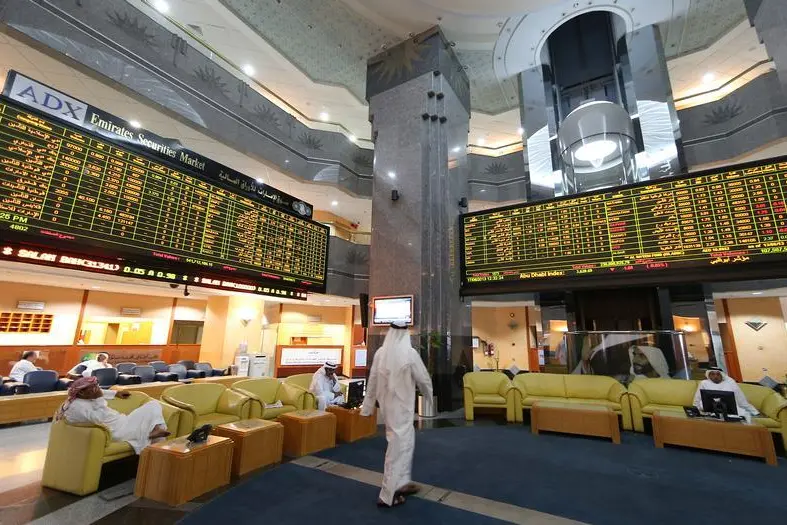PHOTO
Most Gulf stock markets ended lower on Sunday, with the Saudi and Dubai indexes suffering their biggest single-day fall in nearly two years as fears of a potentially vaccine-resistant coronavirus variant spooked investors.
The World Health Organization (WHO) on Friday designated the Omicron coronavirus variant detected in South Africa as being "of concern" - the fifth variant to be given that designation.
Saudi Arabia's benchmark index slid 4.5%, dragged down by a 5.4% fall for Al Rajhi Bank 1120.SE and a 6.2% decline for Saudi Basic Industries 2010.SE .
The kingdom halted flights from and to Malawi, Zambia, Madagascar, Angola, Seychelles, Mauritius and the Comoros Islands on Sunday owing to concerns related to the spread of the new COVID-19 strain, state news agency SPA reported on Twitter.
The latest panedmic developments also sent oil prices, a key catalyst for the Gulf's financial markets, plunging by $10 a barrel on Friday for their largest one-day drop since April 2020. The new variant added to concerns that an oil supply surplus could swell in the first quarter.
"Despite the previous positive experience of quick recovery in the oil market, investors should keep an eye on news of large-scale lockdowns in the short term," sais Farah Mourad, senior market analyst at XTB MENA.
Dubai's main share index declined 5.2%, its biggest intraday fall since March 2020, with most stocks in negative territory.
Blue-chip developer Emaar Properties plunged 9.4%and budget carrier Air Arabia retreated by 7.1%.
In Abu Dhabi, the index fell 1.8%, weighed down by a 3.3% drop for telecoms company Etisalat and a 1.4% decline for First Abu Dhabi Bank, the country's largest lender.
The United Arab Emirates has suspended entry for travellers from South Africa, Namibia, Lesotho, Eswatini, Zimbabwe, Botswana and Mozambique from Nov. 29 over concerns about the new coronavirus variant, the state news agency reported on Friday.
Even with new treatments for coronavirus infections, health care systems can be overwhelmed by rising cases, leaving governments with little option but to reimpose restrictions that would slow growth or even push economies back into recession. At the same time, those restrictions could worsen supply chain disruptions, adding to inflationary pressure even as growth slows, said Khatija Haque, head of research and chief economist at Emirates NBD.
In Qatar, the indexslipped by 2.8% as investors shunned stocks across board, with petrochemicals group Industries Qatar leading the losses.
Egypt's blue-chip index lost 1.3%, with top lender Commercial International Bank retreating by 0.8%.
(Reporting by Ateeq Shariff in Bengaluru Editing by David Goodman ) ((AteeqUr.Shariff@thomsonreuters.com; +918061822788;))





















